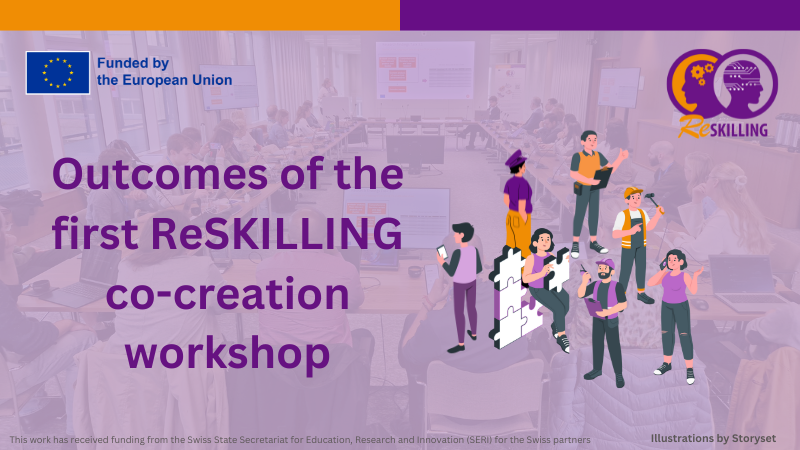CCAM employment effects: outcomes of the first co-creation workshop

As Europe moves toward a future shaped by Connected, Cooperative, and Automated Mobility (CCAM), understanding how this transformation will affect the transport workforce is critical. Hence, the ReSKILLING project recently organised a co-creation workshop to explore the employment effects of CCAM and potential actions to support workers through the transition.
The workshop brought together stakeholders from across the mobility field to collaboratively assess skill needs and anticipate the socio-economic shifts that CCAM will bring. It was structured around three core sessions: a discussion on employment and skills, scenario exploration, and business models analysis.
One of the most significant outcomes of the workshop was the identification of essential skills for the CCAM transition phase. These include transversal competencies like cybersecurity, AI literacy and ethics, and communication, as well as specific technical skills in data management and system maintenance. Participants agreed on the need to dynamically manage different technologies during the transition, paying special regard to safety. Strategies to address regional (economic) disparities and effective communication to the public are also crucial for a smooth transition to CCAM.
Four future scenarios, based on varying degrees of government and corporate power, were presented. These ranged from highly regulated environments with strong public investment to fragmented, deregulated situations dominated by private interests. Each scenario revealed distinct employment risks and opportunities. For instance, in a high-government/low-corporate power setting, public transport jobs might be preserved artificially, potentially stalling innovation and reskilling. Conversely, in a low-government/high-corporate power scenario, individuals would bear the burden of reskilling, leading to increased inequality and reduced workforce adaptability.
The business model session highlighted how CCAM will reshape operational processes across transport modes. Automation in buses, trams, and shared mobility services will redefine roles such as drivers, fleet managers, and maintenance technicians. New positions orbiting around fleet and infrastructure management (for instance, remote operators, AI system technicians, and maintenance workers) are expected to emerge, requiring a blend of technical, digital, and interpersonal skills. The transition will not be uniform across regions or sectors, and disparities in adoption speed and infrastructure readiness will influence how employment effects unfold and how the public perceives the new systems.
Importantly, the workshop has also addressed the impact of CCAM on vulnerable workforce groups, including older workers, migrants, and those with low digital literacy. Ensuring that these groups are not left behind will require targeted support, inclusive training programs, and proactive policy measures.
The co-creation approach of the workshop exemplifies ReSKILLING’s commitment to participatory research and stakeholder engagement. By collaboratively defining employment effects and skill needs, the project is laying the groundwork for a socially sustainable transition to CCAM: one that empowers workers, supports innovation, and ensures no one is excluded from the future of mobility.